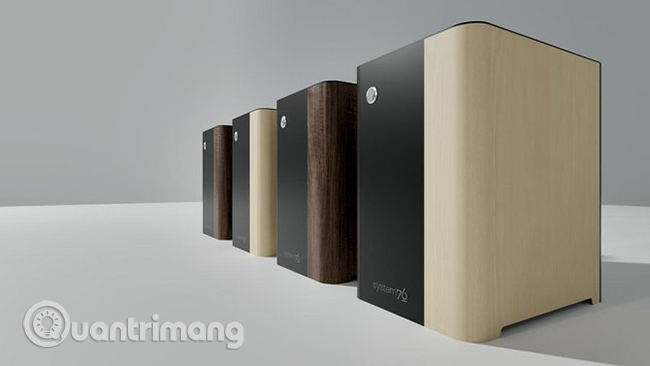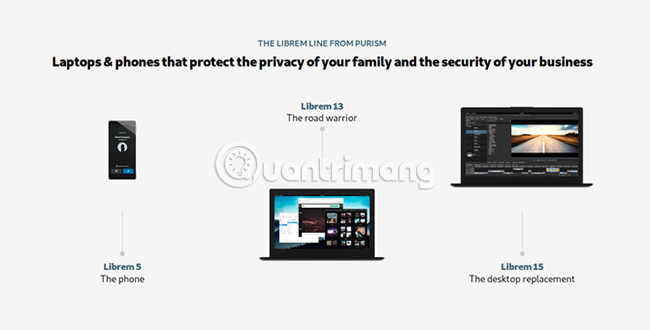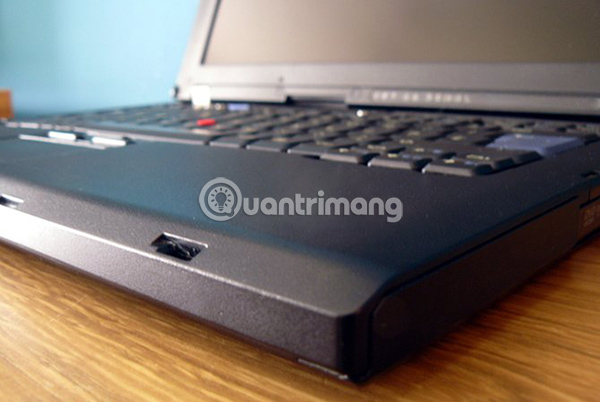6 reasons why Linux phones and laptops are not cheap
Sure, you can download a GNU-based operating system and upload it to your computer without paying a dime. But if you want to buy a PC that already has free and open source desktop pre-installed, then you have to pay some money, and the amount you can pay can be quite large.
Why is that? Let's look at 6 reasons why pre-installed Linux hardware is not cheap.
Linux phones and laptops are very expensive - Why?
- 1. Linux desktops and phones are unique
- 2. Economies in terms of production scale
- 3. Linux computer manufacturers usually only sell computers
- 4. Research and development costs are not cheap
- 5. Customizing hardware takes a lot of effort
- 6. Linux distributions have no money to help
- Everything is starting to change
1. Linux desktops and phones are unique

Linux is the dominant operating system on servers. It is spreading rapidly among Internet of Things hardware and devices.
Linux is not very common on desktop computers. That means if you want to buy a computer with Linux pre-installed, you'll be one of the few people to do that.
A smaller number of users even wish to own a Linux phone running GNU software (as opposed to an Android phone running on a Linux kernel and almost nothing in common with the Linux desktop). That's why efforts to make such phones available in the market have not been successful.
2. Economies in terms of production scale
Manufacturers of processors, storage drives, graphics cards and many other PC components prefer to create high-volume products. If someone assembles a laptop and orders millions of components, they get a discount. If ordered a small amount, they will have to pay extra.
Linux PC distributors tend to be small companies with a small number of employees. They generate relatively small sales compared to large multinational corporations like Samsung or Dell. And unlike Samsung, they don't produce their own components, like hard drives and LCD screens.
Linux phone manufacturers face an even tougher struggle. You cannot expect to sell millions of products when consumers do not need them. Even Linux desktop users don't know what a phone of this type can offer. The Crowdfunding method (crowdfunding) provides companies with a way to address this uncertainty.
3. Linux computer manufacturers usually only sell computers

Multinational corporations like Samsung have many types of products. In addition to PCs and parts for PCs, Samsung also sells phones, smart home products, TVs, washing machines, and more. Therefore, Samsung can use the profits from best-selling products to compensate for the parts that do not bring high revenue.
In contrast, System76 only sells laptops, desktops, and servers. They must price their products so that they can maintain their business.
If the difference between the amount of money required to produce parts as well as labor and the amount that can sell a product is too low, it is difficult for the company to maintain its operations.
4. Research and development costs are not cheap

Companies that want to sell computers running Linux often have to invest time and money to make that happen.
System76 has created its own Linux distribution called Pop! _OS. This gives the company a greater chance of success by promising customers a certain type of experience and fixing any problems that may arise.
Subsequently, Purism took things one step further, by trying to make modern hardware without any proprietary or closed-source firmware available on the market. To do that, the investment firm develops alternatives and reverse engineering.
Purism extended this vision to Librem 5, a phone that was heavily invested in creating the necessary applications and adjusting the GNOME desktop environment to a 5-inch screen, as you can see in Purism's monthly progress report (see: https://puri.sm/posts/librem-5-august-update/).
The work that Purism is doing benefits the open source community in general, but that doesn't mean that research and development funds will be 'full' again. Therefore, the phone price is significantly higher than the price of internal parts.
5. Customizing hardware takes a lot of effort

Some companies buy old machines and refurbish them with Linux. This can be a difficult job, especially if you are trying to remove the proprietary BIOS.
Other companies create new hardware but will install a distribution of your choice. This is the approach that ZaReason takes. When you place an order, all you have to do is choose a Linux distribution from the drop-down menu. Eventually, a specialist will be responsible for downloading the operating system and managing the settings for you.
Installing Linux is not a difficult job, but you need people with certain expertise and must take into account the time needed to configure each order. You can't wait for what's on the shelf and just wait to be sent.
6. Linux distributions have no money to help
Microsoft wants people to use Windows. The company has thrown a lot of money into advertising, persuading people to buy a copy of the operating system or, most likely, a pre-installed Windows PC. PC manufacturers such as Dell and HP compete with each other, but they are not trying to convince people to use Windows.
Linux hardware sellers are not. Even when System76 only sold Ubuntu PCs, Canonical had no marketing money to motivate people to buy those machines (or machines running Ubuntu from Dell). Wanting to make money by creating a desktop running an open source operating system can be a big challenge.
Most projects simply do not have money to invest. Large open source software companies tend to spend a lot of money advertising to attract business customers. When companies decide to sell Linux hardware for everyday desktop use, they will have to go it alone.
Everything is starting to change
Cheaper hardware using Linux is starting to appear, largely due to the rise of single-board computers. Raspberry Pi, starting at around $ 35 (VND 805,000), has brought Linux to many people who have no desire to give up Windows or macOS.
With the release of the Raspberry Pi 4, it's possible to consider using the Pi as the main computer. The Raspberry Pi Foundation even has a tablet that supports Pi.
Pine64 has put a similar hardware in the laptop shell and released a product called Pinebook for only $ 100 (VND 2,300,000).
A more powerful sequel, Pinebook Pro, is also priced at around $ 200 (VND 4,600,000). The company is even trying to bring a Linux-based phone to the market for 1/3 the price of Librem 5. Unlike Purism, Pine64 does not remove proprietary firmware and let other teams handle the software. Pine64 also has a tablet, which is expected to sell for less than $ 100 starting price (VND 2,300,000).
How does Pine64 do this? The parent company Pine Microsystems has set up each project with minimal overhead. Intel NUC alternatives such as System76 Meerkat and ZaReason Zini offer fully functional desktops for around $ 500. That means you can recommend Linux to a friend or family member who doesn't know much about the technology and doesn't make them pay a fortune for it.
However, no matter how cheap these devices are, the most logical option is to install Linux on the PC you already own.
Good luck!